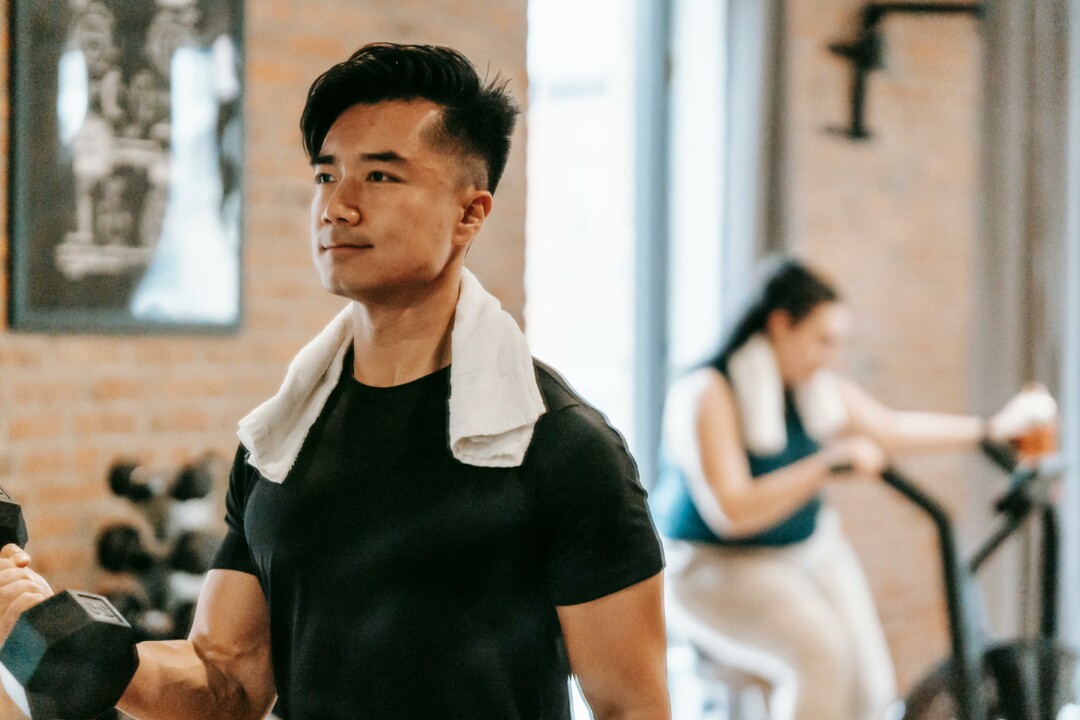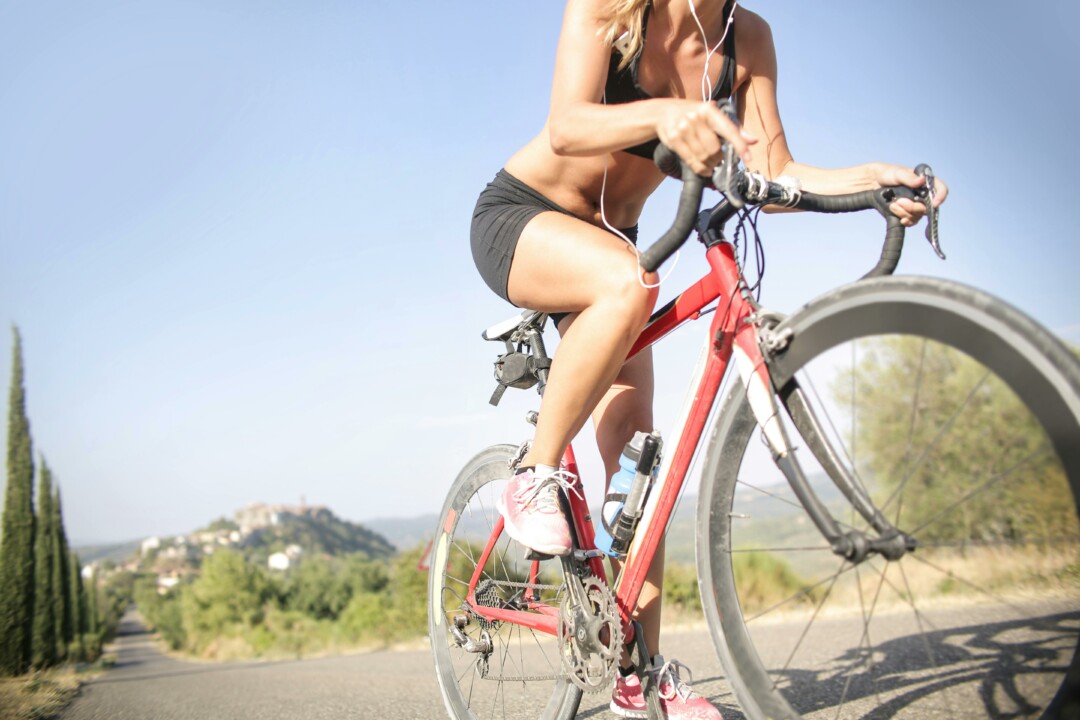
Discover the importance of hydration during workouts for athletes and fitness enthusiasts. On Water Day, learn seven essential tips and benefits for staying hydrated and improving performance.
Hydration is crucial to any workout, especially for athletes and fitness enthusiasts. As we celebrate World Water Day, now is the perfect time to emphasize the importance of staying hydrated during workouts and sports activities. Proper hydration is not just about quenching your thirst; it enhances performance, prevents injuries, and ensures overall health. In this article, we’ll explore seven benefits of keeping hydrated and tips to help you stay at the top of your game.
#1 Improved Energy and Endurance
Around 60 percent of our body is water, which means we can’t effectively utilize the energy from food if we’re dehydrated. Current research has backed this, which found dehydration to decrease mitochondrial function. A study published in the Journal of Applied Physiology found that even a 1% decrease in body water content can impair mitochondrial function and energy production (Armstrong et al., 2012).
A meta-analysis on hydration and endurance performance showed similar findings: Dehydration equivalent to 2% or more of body weight can significantly impair aerobic performance (Cheuvront et al., 2005), while another study in the Journal of Strength and Conditioning Research found that 2.5% of body weight dehydration reduced cycling performance by 15% (Logan-Sprenger et al., 2013).
Having established the importance of staying hydrated, timing is also important. The American College of Sports Medicine recommends consuming approximately 500-600 mL (about 17-20 oz) of water at least 2-3 hours before exercise to ensure adequate hydration (Sawka et al., 2007).
Practical Tips to Stay Hydrated
To maintain hydration during exercise, it is recommended to drink about 7-10 ounces of water every 10-20 minutes of activity, depending on the intensity and environmental conditions (American Council on Exercise, 2019).
However, there is no “one-size-fits-all” for water intake, which is not limited to eight glasses daily. Instead, water intake must be in proportion to your body weight.
A general guideline is to drink half an ounce to an ounce of water for each pound of body weight per day, with increased intake for physically active people (Mayo Clinic, 2020).
#2 Enhanced Muscle Function

Water and electrolytes are key in maintaining the body’s equilibrium and supporting various physiological functions. Electrolytes are pivotal for regulating our body’s fluid balance and nerve and muscle contractions. Acting as a primary transport medium, water facilitates the distribution of electrolytes and nutrients throughout the body, ensuring cellular activities and sustaining hydration levels.
Role of Water and Electrolytes:
- Water is crucial for maintaining muscle health as it helps to transport nutrients to the muscles and remove waste products. It also plays a role in maintaining the volume and pressure of cells, which is essential for muscle function.
- Electrolytes such as sodium, potassium, magnesium, and calcium are essential for muscle contraction and relaxation. They help to regulate nerve impulses and maintain fluid balance within muscle cells.
Muscle Cramps and Hydration:
- Muscle cramps are often associated with dehydration and electrolyte imbalances. A study in the Journal of Athletic Training found that athletes who experienced muscle cramps had significantly higher sweat rates and sodium concentrations, indicating dehydration and electrolyte loss (Miller et al., 2010).
- Proper hydration can help to prevent muscle cramps by maintaining electrolyte balance and reducing the risk of imbalances that can trigger cramping.
Hydration Strategies for Muscle Health:
Maintaining Electrolyte Balance:
- Incorporating foods rich in potassium (e.g., bananas, sweet potatoes), magnesium (e.g., spinach, almonds), and calcium (e.g., dairy products, leafy greens) into one’s diet can help maintain electrolyte balance.
- A study in the American Journal of Clinical Nutrition found that increased dietary potassium intake was associated with lower blood pressure and reduced risk of stroke, highlighting the importance of potassium in overall health (Aburto et al., 2013).
Natural Hydration Sources:
- Fruits and vegetables high in water content and electrolytes, such as watermelon, cucumbers, oranges, and strawberries, can be excellent sources of natural hydration.
- A study in the journal Nutrients found that consuming fruits and vegetables with high water content can contribute significantly to hydration status, especially in individuals with low water intake (Hess et al., 2016).
#3 Improve Cardiovascular Health
Hydration’s Impact on Cardiovascular Performance

Hydration plays a crucial role in maintaining cardiovascular efficiency during exercise. Adequate hydration helps maintain blood volume, essential for optimal cardiovascular function. Here are some statistics and research findings that illustrate this relationship:
- Blood Volume and Heart Rate: A study published in the European Journal of Applied Physiology found that a decrease in plasma volume due to dehydration led to increased heart rate during exercise, which can affect cardiovascular efficiency (González-Alonso et al., 1995).
- Dehydration and Blood Pressure: Research in the Journal of Physiology indicates that dehydration can increase blood pressure during exercise, as the body works harder to maintain blood flow to vital organs (Wilson et al., 2019).
- Exercise Performance: A review in the Journal of Sports Sciences concluded that mild dehydration (1-2% body weight loss) can impair endurance exercise performance by reducing cardiac output and increasing cardiovascular strain (Sawka et al., 2007).
Guidelines for Cardiovascular Hydration:
To optimize cardiovascular performance and health during exercise, it is important to follow these hydration guidelines:
- Pre-Exercise Hydration: Consume 17-20 ounces of water 2-3 hours before exercise to ensure proper hydration levels (American College of Sports Medicine, 2007).
- Hydration During Exercise: Drink 7-10 ounces of water every 10-20 minutes during cardiovascular activities, especially in hot or humid conditions (American Council on Exercise, 2019).
- Post-Exercise Rehydration: To replenish fluids lost during exercise, drink 20-24 ounces of water for every pound of body weight lost (Sawka et al., 2007).
- Listening to Thirst: Pay attention to thirst signals as an indicator of hydration needs. However, rely on something other than thirst, as it may not be an early enough indicator of dehydration.
- Recognizing Dehydration: Be aware of signs of dehydration, such as increased thirst, dry mouth, fatigue, and decreased urine output, and take immediate steps to rehydrate.
#4 Regulate Body Temperature:
The Cooling Power of Hydration:
The human body regulates its temperature through sweating, dissipating heat as sweat evaporates from the skin. Adequate hydration is crucial for this process, ensuring the body has enough fluid to produce sweat.
- Sweat Rate and Hydration: A study published in the Journal of Athletic Training found that athletes can sweat up to 2.5 liters per hour during intense exercise in hot conditions. This highlights the importance of hydration to support sweating and heat dissipation (Maughan et al., 2007).
- Overheating and Dehydration: Research has shown that even mild dehydration (1-2% body weight loss) can impair the body’s ability to regulate temperature, increasing the risk of heat exhaustion and heat stroke (Sawka et al., 2007).
- Hydration and Heat Stroke Prevention: A review in the Journal of Sport and Health Science indicated that adequate hydration can reduce the risk of heat stroke by maintaining blood volume and reducing body core temperature during exercise in the heat (Lopez et al., 2014).
Tips for Hydration and Heat Management:
When exercising in hot weather or outdoors, adjusting fluid intake to account for increased sweating and prevent overheating is essential.
- Fluid Intake Timing: The American College of Sports Medicine recommends drinking about 16-24 ounces of water at least two hours before exercising in hot weather to ensure adequate hydration (Sawka et al., 2007).
- Hydration Gear: Hydration gear, such as water bottles or hydration packs, can help maintain fluid intake during long outdoor activities. A study in the International Journal of Sports Physiology and Performance found that carrying a water bottle increased runners’ hydration status and improved their performance (Peacock et al., 2012).
- Acclimatization: The body takes 7-14 days to acclimate to hot weather, during which hydration needs may increase. A study in the Journal of Applied Physiology showed that acclimatization improves sweat rate and reduces electrolyte loss, enhancing hydration efficiency (Périard et al., 2015).
#5 Improved Recovery and Performance
Role of Hydration in Post-Workout Recovery:
Hydration is crucial in post-workout recovery. It facilitates the transport of essential nutrients to muscles and aids in the removal of metabolic waste products. Proper hydration can help reduce muscle soreness and expedite recovery times.
- Reduced Muscle Soreness: A study published in the Journal of Athletic Training found that well-hydrated athletes reported less muscle soreness after exercise than those dehydrated (Shirreffs et al., 2004).
- Faster Recovery: Research in the Journal of Sports Science & Medicine suggests that rehydrating with water and electrolytes after exercise can expedite recovery by restoring plasma volume and electrolyte balance (Arnaoutis et al., 2015).
Hydration for Optimal Performance and Recovery:
A recovery hydration plan should include fluids that rehydrate and replenish electrolytes, carbohydrates, and proteins, supporting muscle repair and restoring energy stores.
- Electrolyte Balance: A study in the International Journal of Sports Nutrition and Exercise Metabolism found that consuming electrolytes and carbohydrates after exercise can enhance rehydration and recovery by restoring fluid balance better than plain water (Baker et al., 2009).
- Muscle Repair and Recovery: Research indicates that recovery drinks containing carbohydrates and protein can accelerate muscle glycogen synthesis and enhance muscle recovery post-exercise (Ivy et al., 2003).
- Optimal Fluid Intake: The American College of Sports Medicine recommends consuming 1.5 liters of fluid for every kilogram of body weight lost during exercise to ensure adequate rehydration for recovery (Sawka et al., 2007).
Conclusion
Hydration is not just an add-on but a must-do in your fitness journey. You can unlock your full potential by understanding the science behind hydration and its impact on energy, muscle function, cardiovascular health, temperature regulation, and recovery. Implementing practical tips for maintaining hydration, from pre-workout routines to post-exercise recovery plans, ensures your body is always primed for peak performance. So, as we celebrate Water Day, let’s prioritize hydration for our workouts and overall health and well-being. Drink up and elevate your fitness game!
To know more ways to optimize your team’s health, feel free to contact us at HoliFit – the number one employee well-being company in QC.
Visit our website at www.holifit.ph or check out our Facebook page, Instagram, LinkedIn, and YouTube Channel for more information about our services.


